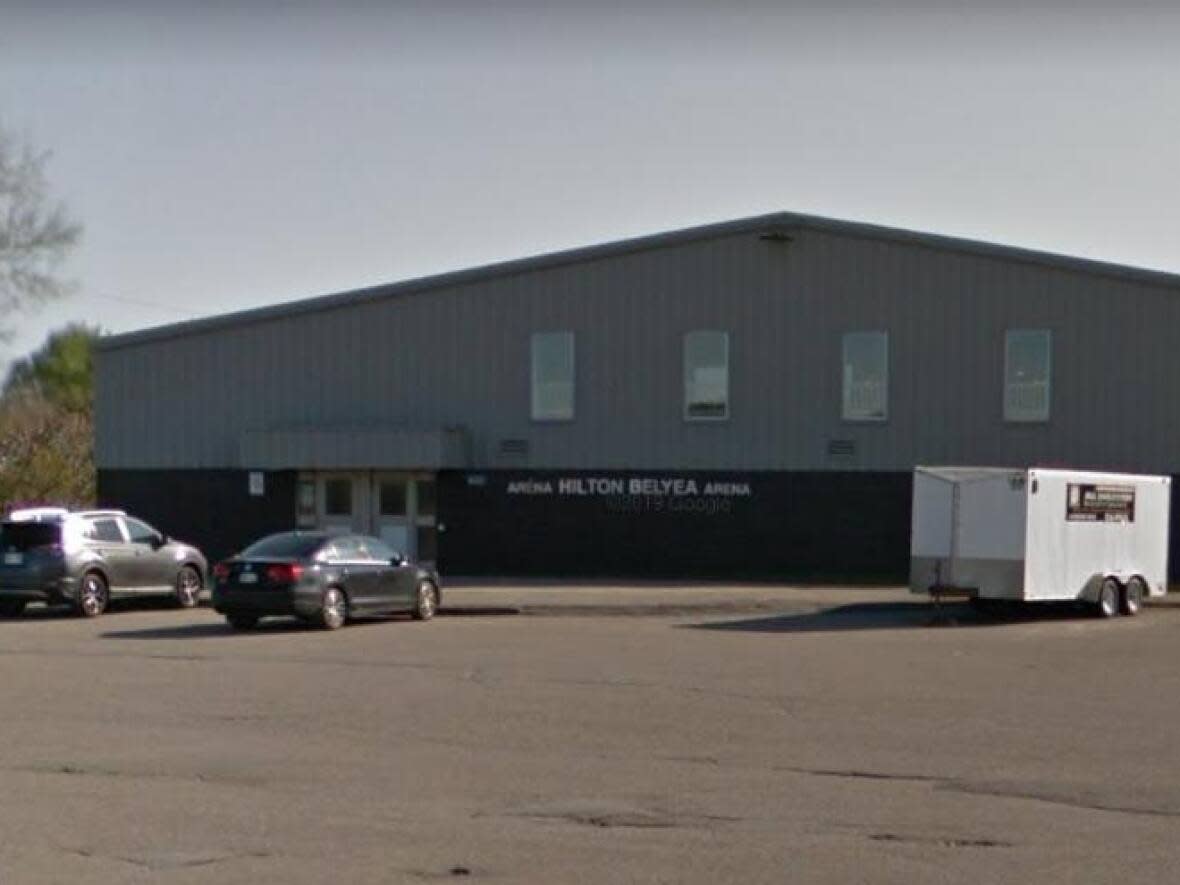Closed Saint John arena will become emergency shelter for the winter

The City of Saint John has agreed to provide the former Hilton Belyea Arena to serve as a temporary emergency shelter this winter.
The west side arena was decommissioned in 2020. It served the same role as a shelter earlier this year when a spike in COVID-19 cases forced shelter operators to find a larger space to allow for physical distancing.
David Dobbelsteyn, the city's acting director of growth and community planning, said the Human Development Council reported in October that at least 133 people in the city were homeless, with 48 of them regularly sleeping outside.
There are only 40 shelter beds in the city, 30 at Outflow and another 10 at the women's Coverdale shelter, with 94 per cent occupancy.

"We quickly determined that the Belyea [arena] was probably the best, most viable building that we had access to with the short runway that we had available," he said.
"We also recognized, though, that the arena is not necessarily in the best location in terms of accessing services."
Saint John Transit will offer a once daily shuttle to get people to and from the shelter on the lower west side to services in other parts of the city.
Dobbelsteyn said the temporary shelter will operate from 8 p.m. to 8 a.m.
It will open on Dec. 1 and stay open until the end of March.
The Salvation Army will manage the shelter.

Its outreach co-ordinator Nick Shepard said the Salvation Army believes the number of people 'living rough' is much higher than the statistics would suggest, because the current list only contains people who agreed to be counted and have their name supplied to service organizations.
"I myself have dozens of clients who won't give consent to [have their name shared] with various agencies," Shepard said.
Shepard said the new shelter is already fully staffed, with three people available for each night shift.
With the location being a bit out of the way, some councillors expressed concern it might not be used, but Shepard was confident it would be full on the night it opens.
"I'm visiting the encampments and all of the various locations around the city — I think there's almost a dozen at this point, I just discovered one today at the Red Rose Tea building — and there's ... quite a lot of buzz around the idea of this new shelter opening," he said.
Some flexibility
Shepard said the shelter will have 30 beds but will also have an extra five for flexibility around an issue identified by Horizon Health.
Shepard said the local emergency room found it was treating a lot of people from this population, and staff were reluctant to discharge them on a cold night, knowing the shelters were already likely filled by then.
"So they would essentially keep them overnight and you're taking up the bed of someone who, you know, really needs it."
He said the few extra beds will allow the shelter to take in those clients on short notice.
The city will provide about $20,000 to help pay the electricity bill to keep the shelter warm, the province is funding the rest.
Shepard hopes the new shelter can help them reach more people, to find permanent solutions.
"You know, it's very difficult to be able to reach someone and to be able to support them on their path, whatever that looks like — could be education, could be employment, et cetera — when they're sleeping in a tent."

 Yahoo Movies
Yahoo Movies 
